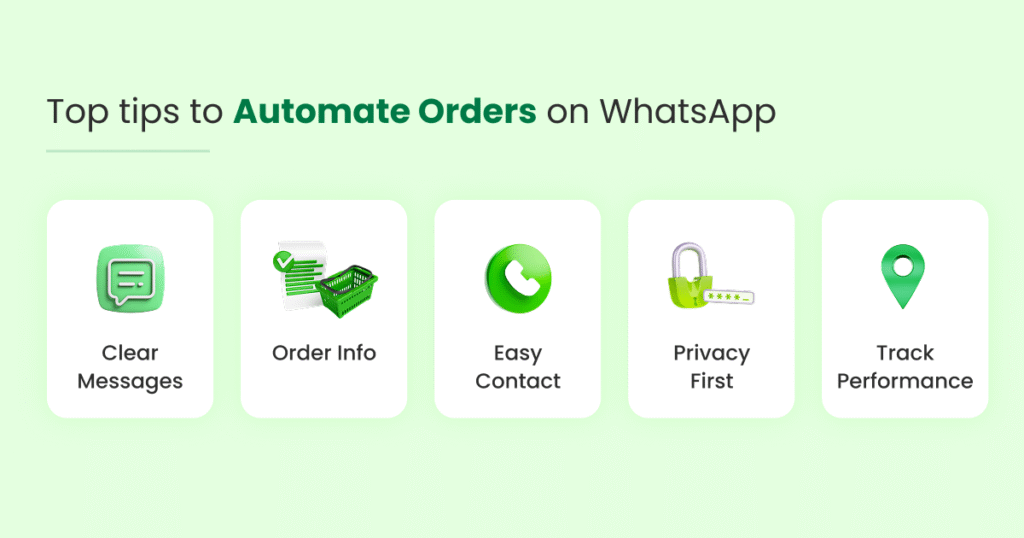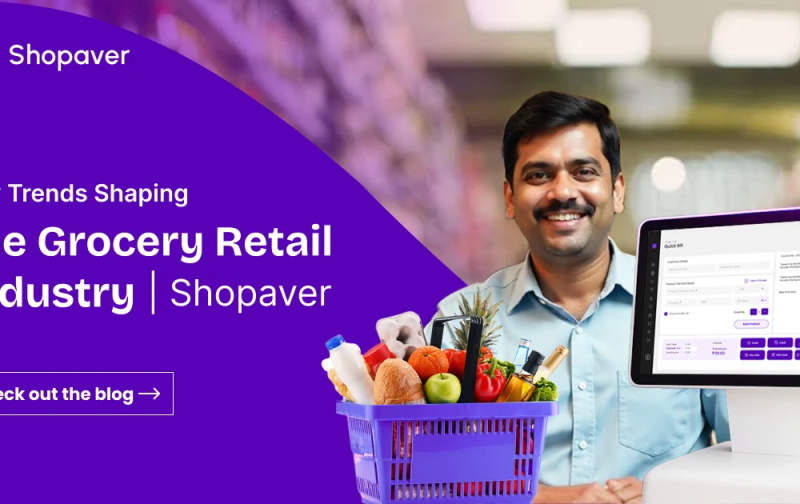For small and medium businesses, WhatsApp has become the easiest way to talk to customers. From taking orders to answering questions, it helps you run your business without complex systems. But if you want to grow faster, manual messages are not enough.
This is where WhatsApp automation makes a big difference. With the right tools, you can automatically send order confirmations, invoices, and delivery updates, without typing the same messages again.
Let us know how WhatsApp API, WhatsApp Cloud API, and other solutions can help you set up WhatsApp order automation for your business.
Why Automate Messages on WhatsApp Automation?
Customers today expect quick updates. If you reply slowly, they may worry or cancel their orders. Automating your WhatsApp messages offers many benefits:
- Save time: No need to copy-paste details for every order.
- Look professional: Customers get clear, timely updates.
- Reduce errors: Automation pulls the correct order information each time.
- Increase trust: People feel confident when they get fast confirmation.
Whether you sell clothes, food, or services, WhatsApp automation for business helps you handle more orders with less effort.
What Is the WhatsApp API?
To understand how automation works, you first need to know what the WhatsApp API is.
The WhatsApp Business API lets you connect your systems, like websites, CRM, or order management software, to WhatsApp. This means:
- You can send messages automatically when an action happens (like a new order).
- You can trigger updates without opening your phone.
- You can reply to customer queries on a scale.
Earlier, the Business WhatsApp API was only available through official providers and was more expensive. But now, Meta has also launched the WhatsApp Cloud API, which makes it easier for small businesses to use.
WhatsApp Business API vs. WhatsApp Cloud API
Both APIs help you automate messages, but they have a few differences:
- WhatsApp Business API: Hosted by business solution providers (BSPs). You pay them for access and support.
- WhatsApp Cloud API: Hosted by Meta on their servers. This option is often simpler and more affordable for small businesses.
When comparing WhatsApp API pricing and WhatsApp cloud API pricing, check:
- Monthly fees or per-message fees
- Number of messages included in the plan
- Support and setup services
How WhatsApp Automation order Works
Once you set up your API connection, you can create workflows that send messages automatically. For example:
- Order Confirmation:
When a customer places an order on your website, your system sends an order summary on WhatsApp immediately.
- Invoice Sharing:
As soon as payment is processed, an invoice PDF or payment receipt is sent.
- Delivery Updates:
When the order is shipped or out for delivery, an automatic update is shared with tracking details.
You can also set up a WhatsApp auto reply to messages to answer common questions, like:
- “What is my order status?”
- “How do I return a product?”
- “When will my delivery arrive?”
This entire process can run without manual work, saving you hours each week.
Steps to Set Up WhatsApp Automation
If you are ready to start automating, here is a simple step-by-step guide:
- Get WhatsApp Business Account Approval:
You must verify your business with Meta. This process usually takes a few days.
- Choose Your API Option:
Decide between the WhatsApp Business API or WhatsApp Cloud API.
- Pick a Provider or Platform:
Sign up with a provider.
- Create Message Templates:
These are pre-approved messages you can send automatically (like order updates). Each template must be approved by WhatsApp.
- Integrate With Your System:
Connect your e-commerce website or POS system to the API. This step often requires developer help or the provider’s setup service.
- Test Everything:
Before going live, test order confirmations, invoices, and delivery updates to make sure messages look correct.
- Go Live:
Once tested, your automation is ready to help you serve customers faster.
Best Practices for WhatsApp Order Automation

To get the most out of your automation, follow these simple tips:
- Keep messages short and clear: Customers prefer simple updates.
- Always include order details: Like order number, items, and expected delivery date.
- Offer easy contact options: Include a link or button to reach customer support if needed.
- Respect privacy: Only send messages to people who have opted in to receive updates.
- Monitor performance: Check delivery reports and reply to rates to improve your messaging.
Done right, WhatsApp automation will make your business look professional and responsive.
Automating your order confirmations, invoices, and delivery updates with WhatsApp automation for business is one of the simplest ways to save time and keep customers happy.
With tools like the WhatsApp Business API and WhatsApp Cloud API, you can make sure every customer gets fast, clear updates about their orders. Start by picking a trusted provider, set up your templates, and watch how WhatsApp order automation makes your workflow faster and your customers more satisfied.
FAQs
1. What is WhatsApp automation?
It is the use of software or APIs to send messages like order updates, invoices, and auto replies without manual work.
2. Is WhatsApp automation expensive?
Costs vary by provider and volume. Small businesses can often start with affordable monthly plans.
3. Can I send any message I want automatically?
You must use pre-approved message templates for outbound messages like order updates.

Aachal has 5+ years of experience in retail technology and POS-related content, writing practical and insight-driven blogs for small businesses in India.



